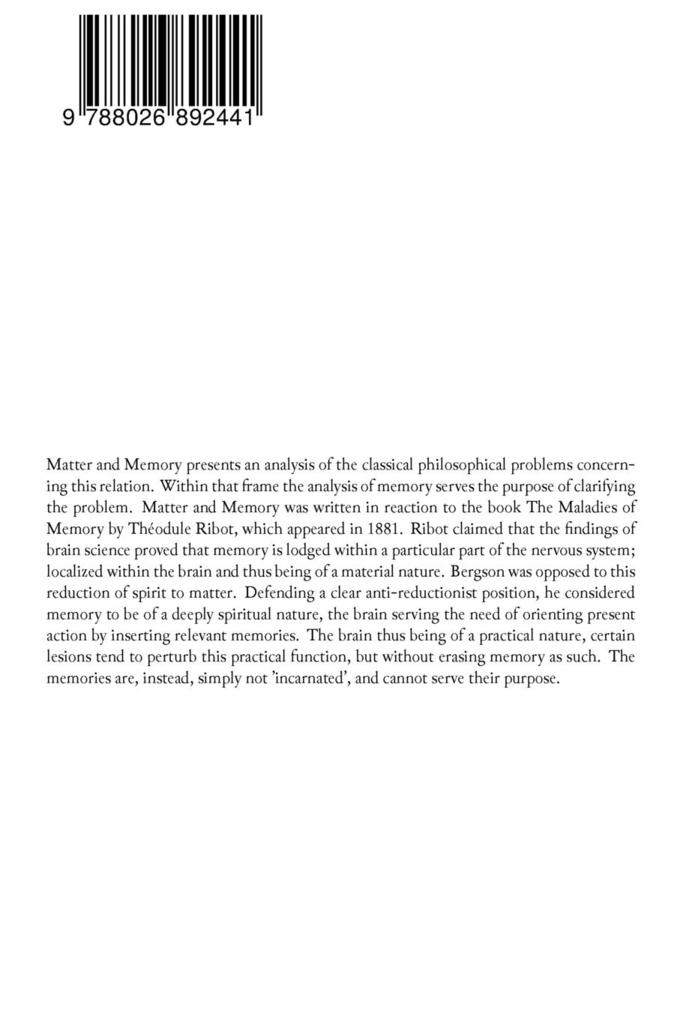
Zustellung: Do, 26.06. - Di, 01.07.
Versand in 2 Wochen
VersandkostenfreiBestellen & in Filiale abholen:
In "Matter and Memory," Henri Bergson presents a profound examination of the relationship between perception, memory, and consciousness, intertwining philosophical inquiry with scientific insight. Bergson's literary style is both accessible and incisive, characterized by fluid prose that invites readers into a complex exploration of how human experience is scaffolded by the interplay of physical matter and mental processes. This work is situated within the context of early 20th-century philosophy, as it responds critically to the mechanistic and reductionist tendencies of contemporary thought, signaling a shift towards emphasizing the dynamism of human experience and the fluidity of time. Henri Bergson, a prominent French philosopher and Nobel laureate, was deeply influenced by the rapid advancements in science and psychology during his time. His background in both philosophy and the natural sciences shaped his approach in "Matter and Memory," where he sought to articulate an understanding of consciousness that accounts for lived experience, thus challenging rigid boundaries between the existential and the material. Bergson's keen observations of life, time, and memory are informed by personal introspections and a tireless exploration of the essence of being. "Matter and Memory" is essential reading for those interested in philosophy, cognitive science, and the foundations of modern thought. Bergson's insights challenge readers to reconsider the nature of reality and the processes of memory, making this work a crucial addition to the canon of philosophical discourse. The book's innovative perspective has influenced generations and remains a relevant touchstone for contemporary debates on consciousness and cognition.
Produktdetails
Erscheinungsdatum
15. April 2019
Sprache
englisch
Seitenanzahl
124
Autor/Autorin
Henri Bergson
Übersetzung
Nancy Margaret Paul, W Scott Palmer
Verlag/Hersteller
Produktart
kartoniert
Gewicht
190 g
Größe (L/B/H)
228/151/15 mm
ISBN
9788026892441
Bewertungen
0 Bewertungen
Es wurden noch keine Bewertungen abgegeben. Schreiben Sie die erste Bewertung zu "The Matter and Memory" und helfen Sie damit anderen bei der Kaufentscheidung.










